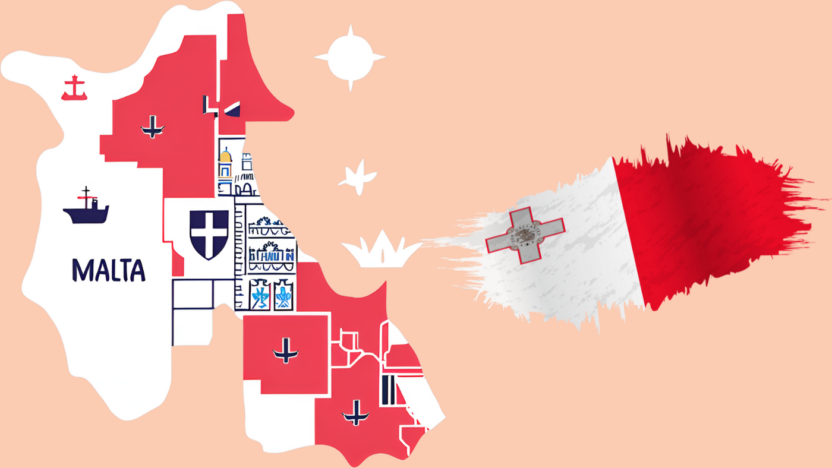Introduction
Are you a digital nomad seeking a sunny paradise with a favorable tax regime? Malta might just be the perfect destination for you. Known for its rich history, Mediterranean lifestyle, and growing expat community, Malta also offers attractive tax benefits for those who qualify. In this guide, we delve into the details of Malta income tax, its implications for digital nomads, and practical steps to manage your taxes effectively.
Understanding Malta’s Income Tax System
Malta’s tax system is residence-based, meaning you’re taxed on your income depending on your residency status and the source of your income.
Key Highlights
- Residents: Taxed on worldwide income.
- Non-Residents: Taxed only on income earned in Malta.
- Remittance Basis: Foreign income brought into Malta may be subject to tax.
Tax Rates
Malta’s income tax rates are progressive, ranging from 0% to 35% based on annual income:
| Income Bracket (€) | Tax Rate (%) |
|---|---|
| 0 – 9,100 | 0% |
| 9,101 – 14,500 | 15% |
| 14,501 – 60,000 | 25% |
| 60,001+ | 35% |
Tip: Leverage Malta’s tax bands to optimize your earnings.
Benefits of Malta for Digital Nomads
1. The Nomad Residence Permit
Malta offers a Nomad Residence Permit for remote workers, allowing you to live and work in the country without being taxed on foreign-sourced income (not remitted to Malta).
Eligibility Requirements:
- Proof of remote work.
- Minimum monthly income of €2,700.
- Valid health insurance.
2. Favorable Double Taxation Agreements
Malta has treaties with over 70 countries to avoid double taxation, ensuring you don’t pay taxes twice on the same income.
3. Lifestyle Perks
- Warm climate and scenic coastlines.
- English is an official language.
- Vibrant expat community and coworking spaces.
Taxation for Digital Nomads: What to Consider
1. Residency Rules
You’re considered a tax resident in Malta if you:
- Spend more than 183 days a year in the country.
- Have a permanent home or business ties in Malta.
Tip: Plan your stays strategically to avoid unintended residency.
2. Remittance Basis Taxation
Foreign income is only taxable if it’s brought into Malta. For digital nomads earning abroad, this is a significant advantage.
Example:
- Income from a U.S. client deposited in a foreign bank account isn’t taxed unless transferred to Malta.
3. Social Security Contributions
If you’re self-employed, you may need to contribute to Malta’s social security system, which provides access to healthcare and pensions.
Practical Steps to Optimize Taxes in Malta
Step 1: Leverage Tax Treaties
Research Malta’s double taxation agreements to understand exemptions and benefits for your home country.
Step 2: Open a Local Bank Account
Having a Maltese bank account simplifies transactions and residency verification. Popular banks include:
- Bank of Valletta.
- HSBC Malta.
Step 3: Work with a Tax Advisor
Malta’s tax laws can be complex. A professional can:
- Help you understand remittance rules.
- File your annual tax returns accurately.
Real-World Example: A Digital Nomad in Malta
Scenario
Maria, a freelance software developer earning €80,000 annually, relocates to Malta using the Nomad Residence Permit.
Tax Strategy
- Keeps her foreign earnings in a non-Maltese account.
- Avoids remitting funds to Malta, staying tax-efficient.
- Uses savings to explore Malta’s rich culture and invest in her business.
Outcome
Maria saves thousands in taxes while enjoying a high-quality lifestyle in Malta.
Common Questions About Malta Income Tax
1. Is foreign income taxed in Malta?
Only if it’s remitted to Malta.
2. Do digital nomads need to pay taxes in Malta?
Digital nomads on the Nomad Residence Permit are generally exempt from Maltese taxes on foreign income.
3. What is the VAT rate in Malta?
Malta’s standard VAT rate is 18%, applicable to goods and services consumed within the country.
Additional Resources
Conclusion
Malta’s income tax system, combined with its Nomad Residence Permit, makes it a top choice for digital nomads looking to optimize their earnings while enjoying a Mediterranean lifestyle. By understanding tax residency rules, leveraging double taxation agreements, and keeping foreign income offshore, you can make the most of Malta’s tax advantages.
Disclaimer: This article is for informational purposes only and does not constitute legal, tax, or financial advice. Consult a qualified tax advisor for guidance tailored to your situation.





